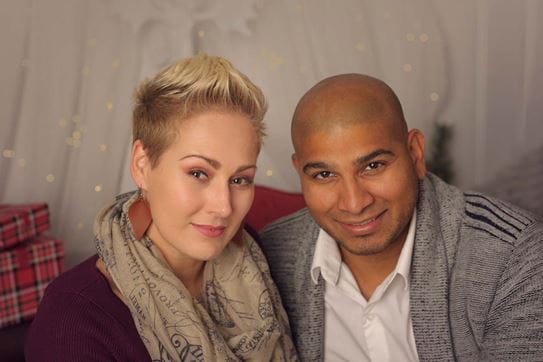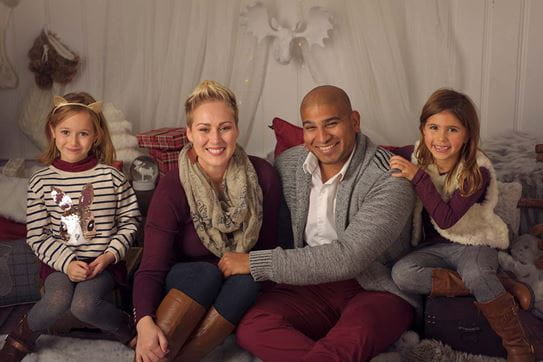When Michelle started experiencing irregular headaches that impacted her vision in 2017, she brushed them off as exhaustion — she was a busy mother of two, working full-time in a corporate position. But after developing severe bruising and internal bleeding over the next three days, she rushed to the hospital and was quickly diagnosed with Acute Promyelotic Leukemia (APL), a rare form of blood cancer that develops from stem cells.
“The doctor said, ‘If you didn’t come into the hospital today, you would have approximately 24 hours left to live.’ Getting diagnosed was terrifying and devastating but it was also a wake-up call. I think it was my body’s way of saying: slow down - here’s your last chance.”

Over the course of the year, she received chemotherapy, many blood infusions and several bone marrow biopsies. By February 2020, she had finished her treatment and was thankfully in remission.
Following her cancer journey, Michelle continues to be grateful for having more time with her family and hopes those who support and give to the cancer cause understand the deep impact they can make.
“I want everyone who donates their money to research, volunteers, or gives blood and bone marrow to know that I would not be alive today without them. Thank you for giving me the opportunity to get married, watch my kids grow up and hopefully have grandchildren one day.”

How new research is helping people with leukemia
Like Michelle, many people with leukemia often experience serious complications after their diagnosis, like anemia, infections and other complications, because they can’t make enough healthy blood cells. Dr Mick Bhatia, whose work is funded by the Canadian Cancer Society, is hopeful that his team’s research can pave the way for new therapies that will allow people with aggressive blood cancers lead longer, fuller lives. They discovered that complications arising from patients’ blood cells are commonly caused by changes in nearby fat cells. Using a diabetes drug, they successfully stopped leukemia cell development and boosted normal blood cell development in people with leukemia.
By supporting the Daffodil Campaign you will help fund more groundbreaking research and a nationwide support system that will have a large impact on the lives of Canadians, like Michelle and her family.
